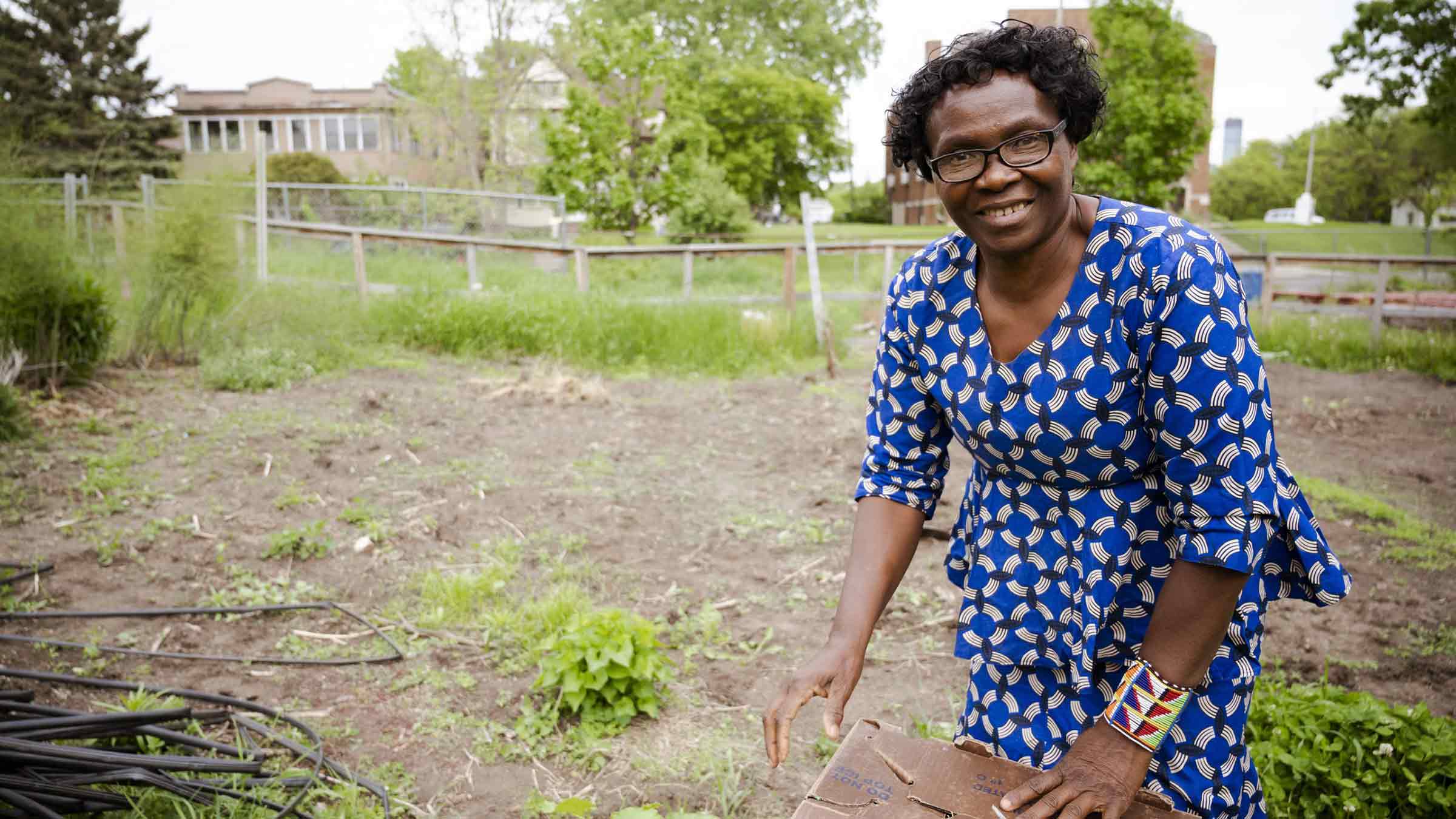
The last two years tragically reflect some of the highest rates of hunger and food insecurity that our region has ever seen. COVID-19 and the aftermath of the racial uprisings due to of the murder of George Floyd exacerbated what was already a steadily growing problem. Record-breaking high inflation, coupled with supply chain disruptions and farming production disturbances due to climate change, have continued to expose the subtle ways food insecurity can show up in families and communities.
We often associate people experiencing food insecurity as users of SNAP or WIC, food shelves, meal or backpacking programs. In reality, food insecurity often looks like swapping out brands; rationing food; reducing purchases; relying on shared meals with extended family and friends; or opting out of or reducing fresh, nutritionally dense, dietary and culturally appropriate foods. Food insecurity can be seasonal, regular or episodic.
What was once seen as an issue that impacted only people and communities experiencing poverty is now understood to be an issue with a far wider impact. At Greater Twin Cities United Way, we strive to support a food-secure region where people have access to food that is nutritious, culturally relevant and affordable, working toward long-term food security in our region.
United Way has a long and important history supporting hunger relief, centered on addressing people’s immediate food needs. We also clearly understand that hunger is a symptom of something much larger — and to work toward long-term food security that solves for the underlying issues, we must employ solutions that include holistic approaches, food systems work and food justice.
Our food security strategy is a continuum and includes work from partners addressing immediate food needs to food justice toward an equitable and thriving food system. We accomplish this through our Community Investments grant funding to nonprofit partners as well as our Full Lives innovation initiative.
We recently welcomed a new cohort of food security nonprofit partners that reflect this evolved approach through their proven practices and promising strategies. Isuroon, a partner that supports Somali women and girls, addresses immediate needs as well as overall long-term household stability. They do so by providing a month’s worth of Halal and culturally relevant foods as well as supporting long-term food security through financial literacy, mental health and wellness programing, advocacy, and civic engagement work.
Another nonprofit partner illustrating our food security continuum strategy is Hmong American Farmers Association, an organization that runs a 155-acre research and incubator farm, providing land access, training, business development and markets to Hmong Farmers. They work in food justice to advance economic prosperity for Hmong farming families through entrepreneurship, spanning multiple generations.
Our communities are experiencing record high rates of food insecurity, revealing the breadth of its impact — both in who is being impacted and how the impacts show up in unexpected ways. Our food landscape has drastically shifted, and United Way has evolved. We have expanded our strategy to work all along the food security continuum, from addressing immediate food needs to working towards food justice — to support meaningful, lasting change in our region.
Great article and informative. Breaking down misconceptions and barriers.